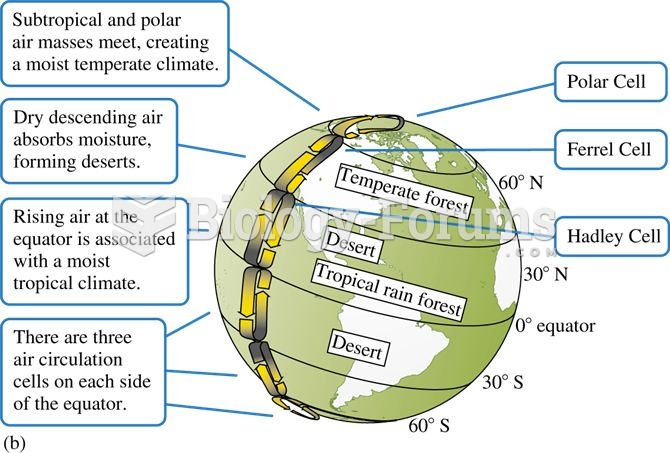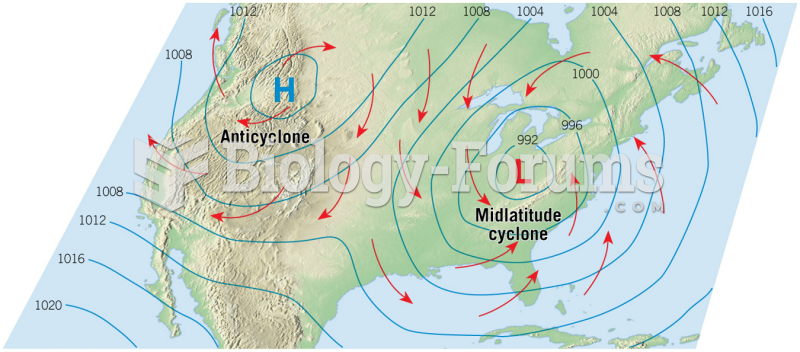|
|
|
There are 20 feet of blood vessels in each square inch of human skin.
Chronic necrotizing aspergillosis has a slowly progressive process that, unlike invasive aspergillosis, does not spread to other organ systems or the blood vessels. It most often affects middle-aged and elderly individuals, spreading to surrounding tissue in the lungs. The disease often does not respond to conventionally successful treatments, and requires individualized therapies in order to keep it from becoming life-threatening.
Cucumber slices relieve headaches by tightening blood vessels, reducing blood flow to the area, and relieving pressure.
Green tea is able to stop the scent of garlic or onion from causing bad breath.
The Romans did not use numerals to indicate fractions but instead used words to indicate parts of a whole.







